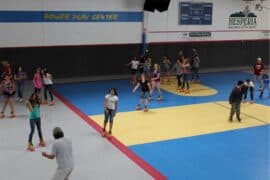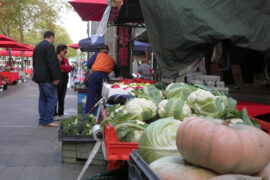A Comprehensive Guide for Parents: How to Organize a Fun and Educational Kitchen Workshop
Hello fantastic parents! Welcome to this cheerful and enlightening space where we ignite the love for cooking among our kids. Cooking is not only an essential life skill, but it’s also a fruitful way to integrate learning and enjoyment. So, strap on your apron, gather your little chefs, and let’s dive into creating a memory-filled kitchen workshop experience.
Why Organizing a Kitchen Workshop for kids is Worthwhile
Before we delve into the step-by-step process of staging such an engaging cooking workshop, let’s first explore the numerous benefits!
Boosting Confidence
Cooking does wonders for a child’s self-esteem. When they successfully prepare a meal, it gives them a sense of achievement and improves their confidence – no dish is too small to celebrate!
Practical Lesson in Math and Science
Guess what? The kitchen is a live science and math class in disguise! Whether it’s measuring ingredients or witnessing the physical changes of materials caused by heat, your child’s learning curve is broadened while cooking.
The Fun Aspect
Cooking is a sheer joy! From deciding on a recipe, mixing ingredients to finally sampling the result, the entire process fills a child’s day with contagious excitement!
How to Set Up the Perfect Kitchen Workshop
Alright, now let’s roll up our sleeves and get to planning our kitchen workshop. Here’s how you can make it an enriching and entertaining experience for kids.
Stay tuned for the next sections where we will give in-depth tips on workshop safety, how to choose the right recipes, creating a balanced meal, and more. Join us in transforming the kitchen into a fun-filled learning hub!
By the end of this guide, you will be fully equipped with knowledge and enthusiasm to host a wonderful kitchen workshop for your kids.
Remember, the joyful memories you create and the lovely skills they learn during this workshop will be the priceless crumbs they gather along the way to becoming fantastic chefs themselves one day. Let’s get cooking, parents!

Ensuring Safety in the Kitchen
Safety is paramount while dealing with kids in the kitchen. Ensure sharp objects, electrical appliances, and hot surfaces are out of reach or under your guidance. Walk your kids through the equipment and its correct use beforehand. Practice good hygiene, washing hands and keeping the work surfaces clean.
Choosing the Right Recipes
Start with simple recipes appealing to your children’s taste buds. Include them in deciding the menu as their involvement will enhance their eagerness. Gradually, introduce a variety of ingredients and cooking methods, expanding their horizons in culinary arts.
Encouraging a Balanced Meal
The workshop is a great opportunity to promote a healthy diet. Help your kids understand the importance of different food groups and how to achieve balance in their meals. This foundation will pave the way for their lifelong healthy eating habits.
Inviting Kid’s Friends
The joy of cooking multiplies when shared! Invite your kid’s friends for collective cooking sessions. These can even turn into sweetly competitive cook-offs, teaching team work while making it fun!
Conclusion: Taste the Fruit of Your Efforts
Hosting a kitchen workshop might seem a little daunting, but believe us, the benefits are delightful and the memories priceless.
So dear parents, together let’s transform everyday cooking into an exciting getaway for our kids. Hold their hands and guide them through this enchanting workshop, wet their appetite for learning, cooking, and tasting the fruits of their efforts!
Cooking is an expression of creativity and love. What better gift can we offer our children than the ability to nourish themselves and others? Happy cooking, fantastic parents!
5 Crucial Things Every Parent Should Know in Preparing for a Kitchen Workshop
Preparing for a kitchen workshop is an exciting time for parents and children alike. It not only encourages creativity but also fosters essential life skills. Below, we’ll explore five key areas parents should consider when preparing for a kitchen workshop.
1. Safety Measures
The kitchen may provide a wealth of learning opportunities, but it’s also filled with potential hazards. Make sure you educate your children about safety measures. Teaching them to handle utensils carefully, avoid touching hot surfaces, or proper hand washing are vital aspects to incorporate.
2. Suitable Recipes
Plan age-appropriate tasks. Younger children might enjoy tasks like stirring and rolling dough, while older kids can progress to using kitchen tools under supervision. Incorporating a range of healthy and fun recipes will excite their culinary interest.
3. Equipment Familiarity
Ensure that your children get acquainted with different kitchen appliances and tools. Explain their functions and how they contribute to making various dishes. This familiarity not only gives them confidence but also establishes respect for kitchen items.
4. Hygiene and Cleanliness
Impart to your kids the importance of cleanliness. Teach them to wash hands before and after cooking, clean up their working space, and proper handling of food. This habit will emphasize the need for hygiene in cooking and overall health habits.
5. Fun and Creativity
The kitchen can be an exceptional source of fun and creativity. Encourage your children to experiment with flavors or decorating their plate. Remember that the end goal is to create an enjoyable and educational environment – so ensure that fun is always on the menu!
In conclusion, preparing for a kitchen workshop means promoting safety, selecting appropriate recipes, familiarizing kids with equipment, instilling cleanliness, and cultivating a fun atmosphere. It’s a fantastic way to bond while teaching critical life skills.
For more great articles please see here. For more information see here
Disclaimer
The articles available via our website provide general information only and we strongly urge readers to exercise caution and conduct their own thorough research and fact-checking. The information presented should not be taken as absolute truth, and, to the maximum extent permitted by law, we will not be held liable for any inaccuracies or errors in the content. It is essential for individuals to independently verify and validate the information before making any decisions or taking any actions based on the articles.




